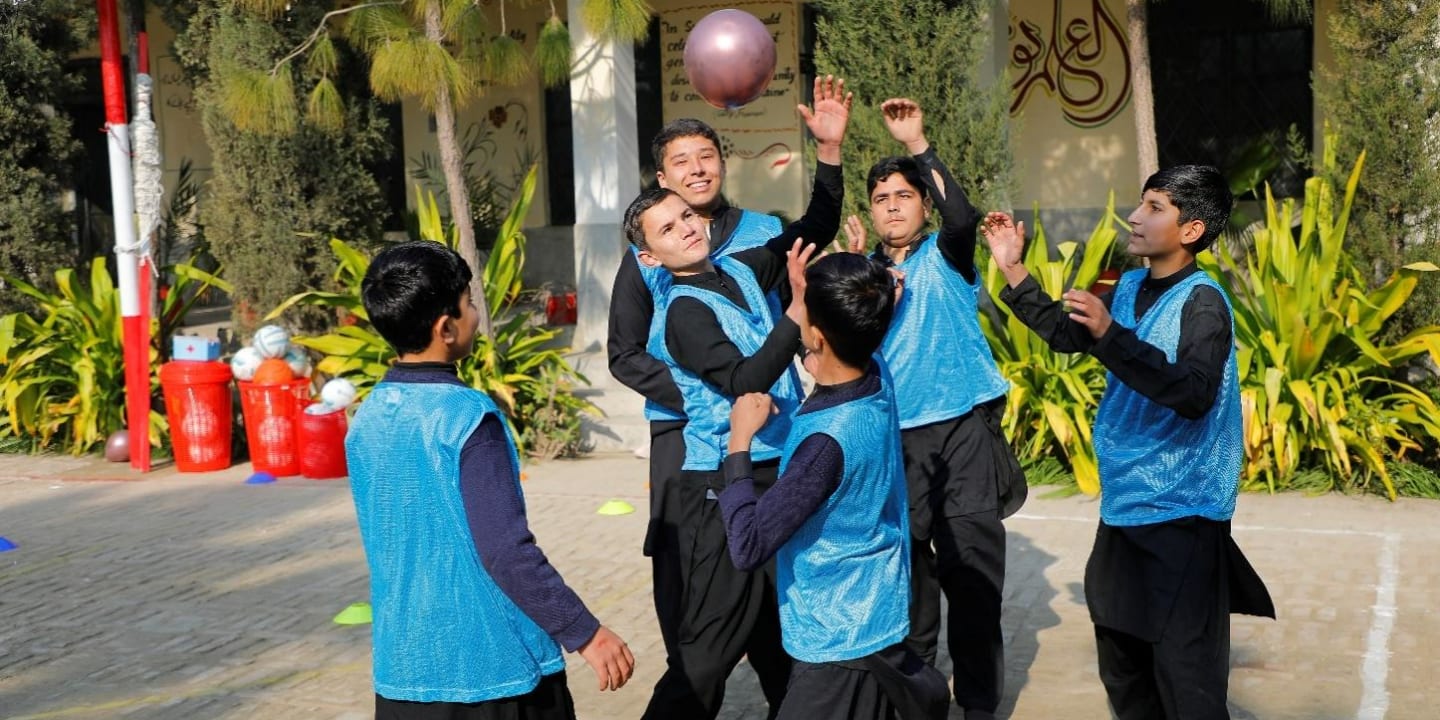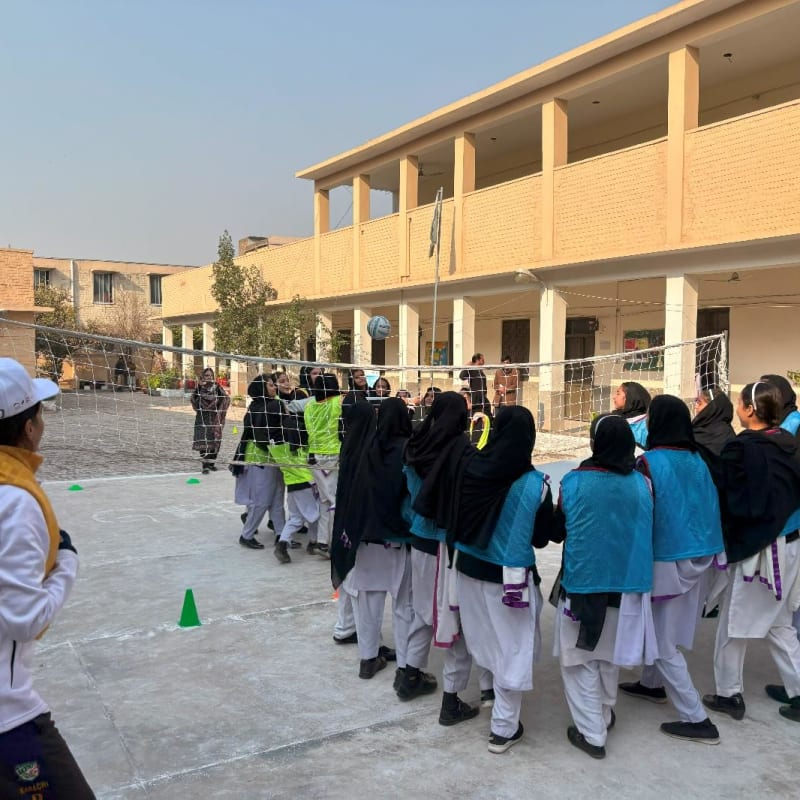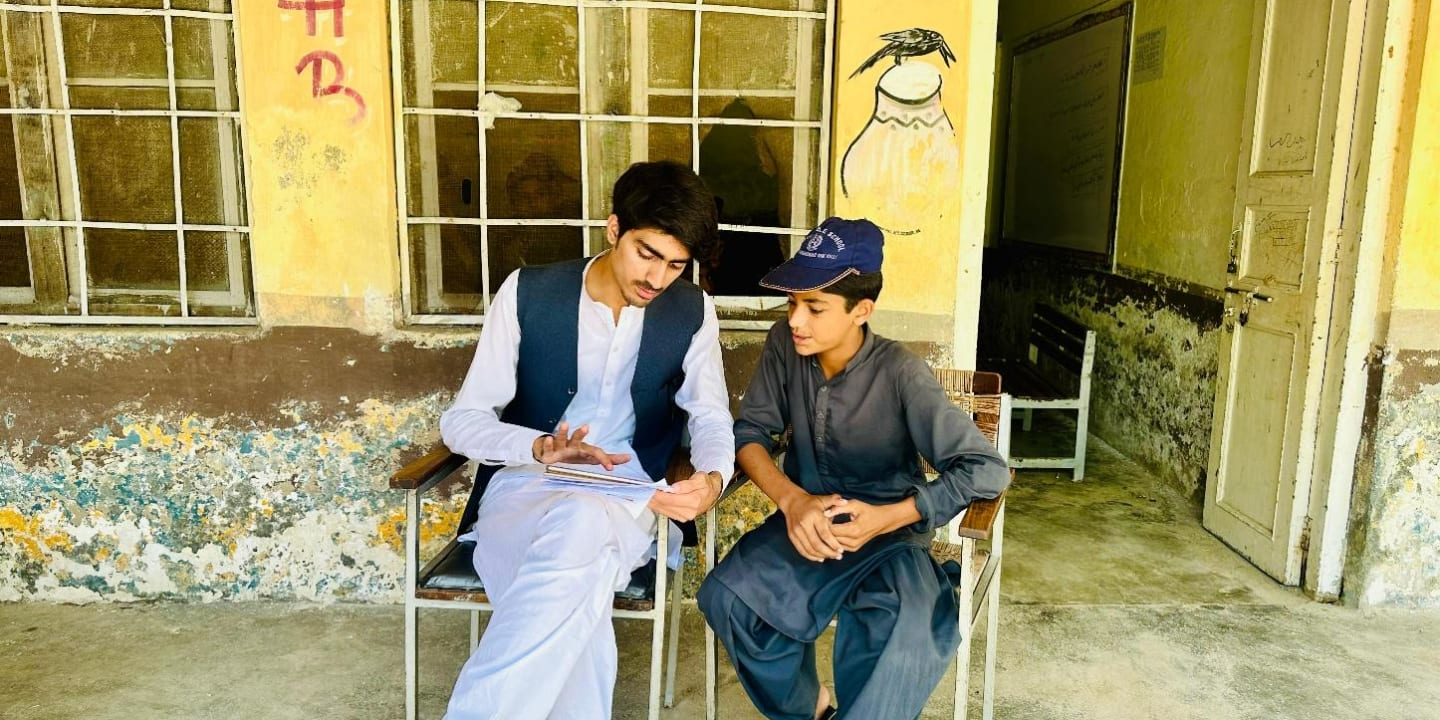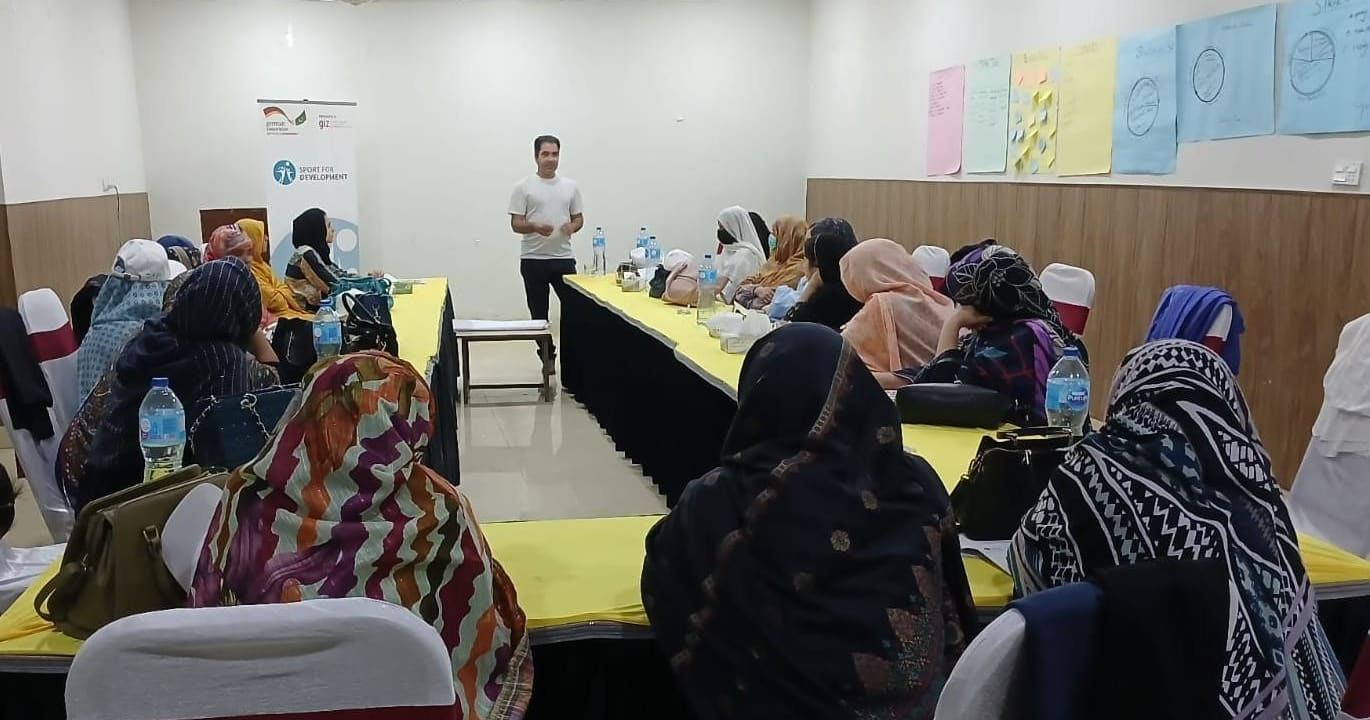Beyond the Game: Using Sport to Foster Gender Equity in Pakistan
“Game On for Equality!” uses Sport for Development to educate boys and girls on gender-based inequalities.

Sport For Good Session for boys in a school in Mardan.
In Pakistan, specifically in the province of Khyber Pakhtunkhwa, in the cities of Peshawar and Mardan, boys and girls are discovering a whole new world through sport — one where they have opportunities and safe spaces to play inside their own schools, and where they learn how to identify and confront gender-based inequalities that were once hidden from their sight.
For many young people in Pakistan, especially those from marginalized communities, growing up presents a troubling paradox: they live in a society with a rich sporting tradition, particularly in cricket, yet face significant obstacles to accessing quality sports education in schools. These challenges arise due to insufficient sport facilities, a lack of trained coaches, and limited investment from both the government and the community in sports development.
For women and girls, these challenges are intensified, as gender disparities and cultural barriers further restrict their participation—not only in sports but also in education more broadly. While young people experience the effects of these barriers firsthand, many are unaware of how systemic gender norms shape their opportunities and choices.
The Game On for Equality project exists to support changing this reality. Led by the Deutsche Gesellschaft für Internationale Zusammenarbeit (GIZ), the German Agency for International Cooperation, with support from the adidas Foundation, the initiative promotes sports participation while supporting young boys and girls in developing a deeper understanding of equal rights in their communities. At the same time, it fosters their physical and emotional well- being.
The transformation sparked by the project begins in classrooms in the cities of Peshawar and Mardan, but its impact extends far beyond school walls. Using a holistic Sport for Development (S4D) approach, the project operates on three key fronts:
01
Strengthening sports education through capacity building in government schools:
Providing training to Physical Education Teachers (PETs) and Assistant Directors of Education (ADEO) Sports.
02
Empowering young leaders for community transformation through sports:
Young Leaders participate in comprehensive training covering gender equality, community mobilization, leadership, and Sport for Development (S4D). This also includes orienting Parent Teacher Council (PTC) members on the S4D approach.
03
Implementing S4D sessions in schools:
PETs and Young Leaders lead sessions focused on addressing gender equality, harassment, gender-based violence, and positive masculinity through sports.
With this multifaceted approach involving various local stakeholders and participants, students now have the opportunity to develop leadership skills, build confidence, and gain awareness of gender equality, all while gaining access to sports. Since its launch in 2023, Game On for Equality conducted capacity-building activities in 30 local schools, providing training to their Physical Education Teachers and Assistant Directors of Education Sports. Additionally, 32 Young Leaders have been trained, leading to 720 S4D school sessions. These sessions have engaged over 3,000 participants, 40% of whom are girls and young women. Beyond the school sessions, Young Leaders have initiated 30 community-based S4D projects, reaching 2,487 individuals—25% of whom are girls and young women.

Sport For Good Session for girls in a school in Peshawar.
"When I joined the program, I didn’t know what gender equality was, nor that women could occupy spaces, or about stereotypes, harassment, and violence. Now, I see many changes in myself - I understand gender equity, women’s rights to occupy spaces, and the impact of violence. I feel confident, and I teach the children. I see a lot of changes in myself and the students."
- Testimonial given by a young women trained as a Young Leader in the project. Participants’ names were suppressed to ensure their privacy.
This testimonial was given by one of 32 Young Leaders being trained as a junior coach about her experience implementing S4D sessions with children in the local schools. In girls’ schools, the Young Leaders teach sports and introduce conversations about harassment, gender-based violence, and women’s rights. For the boys’ schools, the same conversations around harassment, gender-based violence and women’s rights are addressed, while also engaging in the topic of positive masculinity. For many participants, these sessions mark their first exposure to such formative discussions—just as they did for some Young Leaders during their training.

Sport For Good Session for boys in a school in Mardan.
The project also contains a strong impact management component, in partnership with the Women University in Mardan and the Shaheed Benazir Bhutto Women University in Peshawar. Early impact measurements indicate that trained Young Leaders have become role models in their communities, experiencing the project's positive effects in various ways. Some have been selected for national sports leagues, crediting their success to the skills, confidence, and discipline they developed through the program. Others report significant improvements in communication, leadership, and teamwork skills.

Picture of a boy participating in the project being interviewed during the impact measurement phase.
The chain of positive change ignited by the project directly impacts Physical Education teachers as well. The project trains them to integrate sports-based learning into school activities, equipping them to deliver gender-sensitive sports sessions and mentor students. These teachers play a crucial role in ensuring that the program’s impact extends beyond Young Leaders to all participants and that its values are embedded into everyday school life.

Picture taken during the training for Physical Education Teachers.
Using schools as a key space for change
In addition to the transformative action in individual lives and all that it can mean to these young people’s present and future, the work kindled through the project holds the potential to equip local schools to ignite long-term and positive cultural changes. In some of the communities reached by the project, there were no opportunities for girls to practice sports, and strong gender norms that discouraged their participation. For other girls, their parents were hesitant to let them participate in the activities, either for safety or social stigma concerns.
Beyond the gender disparity challenge and the lack of sports infrastructure in many places, the project faced another challenge: making the sessions happen in schools. While the region's schools have a well-structured physical activity and sports curriculum, in many cases, it was not being implemented. To address this, the project team and Young Leaders worked closely with schools to reintroduce sports sessions—an achievement now considered a project win.
This led to an increase in school enrollment, transforming the school into a happy place for many children—something that was reported as not being the case before the S4G sessions. In a context where school attendance is not mandatory, the fact that attendance rates have increased—especially among girls—demonstrates the project's meaningful influence.
Through Game On For Equality, many girls discovered the wonders of sport and their own voice, which they used to lead, speak up, and advocate for themselves. Their increased selfconfidence was reflected in different aspects of their individual, community, and family lives. For the boys, the project offered a new way to view gender roles, and their general social interactions. They, too, began to challenge gender norms and stereotypes, using what they learned to advocate for gender equality.
"My initial intention in joining the program was related to sports. But as I became more involved, I started to be interested in supporting my community to improve in respect to gender equality. I’m happy to be part of a project that is contributing to a social cause that is close to my heart and a major issue in my society.”
- Testimonial given by a young women trained as a Young Leader in the project. Participants’ names were suppressed to ensure their privacy.
The way forward
The story of the people impacted by the Game On for Equality initiative is also the story of how the coordination of different stakeholders toward the same goal—when using such a universal language as sport—can become a true agent of transformation from within existing systems.
This initiative holds the potential to impact the future of its participants by transforming their present while also reaching families, teachers, and the surrounding community. As more young people develop confidence, leadership, and gender equality awareness, the ripple effect continues to grow, paving the way for a better reality for future generations.